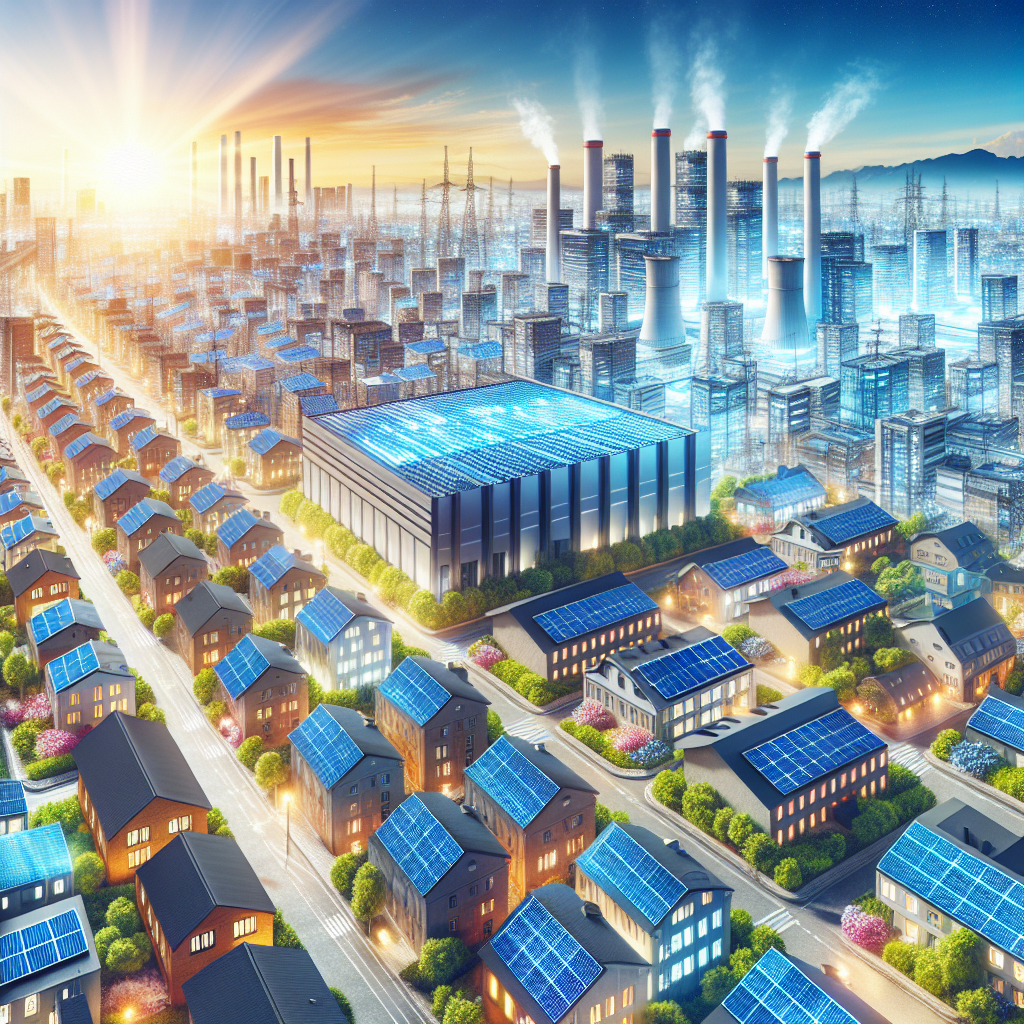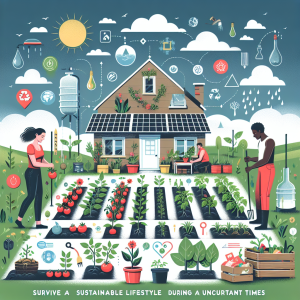The Basics of Off-Grid Living
Off-grid living, a lifestyle separated from public utilities and resources, is growing in appeal among those seeking self-sufficiency, environmental responsibility, and independence. At its core, off-grid living involves generating one’s own electricity, managing water supply, handling waste disposal, and often growing food. For those intrigued by this lifestyle, understanding the basics is crucial.
Electricity generation is a key component of off-grid living. The most popular method involves utilizing solar panels to harness sunlight, converting it into electricity. Solar power is advantageous due to its sustainability and the declining cost of solar panel technology. Panels are typically installed on rooftops or open land with ample sunlight exposure. To store electricity for use during non-sunny periods, battery systems are essential. Lead-acid and lithium-ion batteries are common, with lithium-ion offering a longer lifespan and higher efficiency despite its higher initial cost.
Wind turbines present another viable option for electricity generation, particularly in areas with consistent wind patterns. Small-scale turbines can supplement solar panels, ensuring a stable power supply. Micro-hydroelectric systems, if a water source is available, can provide consistent, renewable energy. These systems convert the energy of flowing water into electricity and are highly efficient if conditions allow.
Water management is critical in off-grid scenarios. Dependency on public water supplies is eliminated by collecting rainwater, drilling wells, or utilizing nearby streams. Rainwater harvesting involves collecting and storing rain from rooftops, directing it into large storage tanks. Filtration and purification systems ensure the water is safe for drinking. Wells, while initially costly, provide a long-term water solution. Those near natural water sources may utilize pumps to access water, but filtration remains paramount to maintain potable water standards.
Waste disposal is another significant consideration, often managed more deliberately compared to conventional living. Composting toilets are a sustainable solution, converting human waste into compost without the need for water or sewage treatment. This reduces water consumption and creates valuable organic material for gardening. Greywater systems recycle water from sinks and showers for garden irrigation, efficiently reducing waste and minimizing environmental impact.
Food production often complements off-grid lifestyles. Growing one’s own food reduces dependency on external sources and ensures a steady supply of fresh produce. Vegetable gardens are common, using organic farming practices to maintain soil health. Raised beds, companion planting, and crop rotation are methods employed to maximize yield and sustainability. Greenhouses extend growing seasons, allowing for year-round cultivation of certain crops. Animal husbandry, including chickens for eggs, goats for milk, or bees for honey, can further enhance self-sufficiency. Livestock requires careful management of feed, shelter, and health, but the rewards include fresh dairy and protein sources.
Heating and cooling methods also pivot from conventional systems. Wood-burning stoves offer a reliable heat source, especially using wood sourced sustainably from one’s own land. Properly insulated homes with south-facing windows can exploit passive solar heating, minimizing energy needs in colder months. In hot climates, natural ventilation, thermal mass, and reflective roofing contribute to a comfortable living environment without mechanically driven air conditioning systems.
Building materials for off-grid homes often emphasize sustainability and efficiency. Natural materials like straw bales, cob, and adobe provide excellent insulation and minimal environmental impact. Modern off-grid construction frequently incorporates earth-friendly technologies, like energy-efficient windows and thermal insulators, to optimize energy conservation.
Communication and connectivity are possible off-grid through satellite internet and mobile networks, maintaining personal and business connections without traditional cable services. These solutions provide access to digital resources, making remote work and learning feasible.
Legal considerations cannot be overlooked. Zoning laws and building regulations can vary dramatically by location, potentially influencing the feasibility of off-grid projects. Researching legal standings and gaining necessary permissions or variances is crucial, ensuring compliance and avoiding future disputes.
The ongoing maintenance of an off-grid system demands a degree of technical know-how. Regular inspections and maintenance of power generation systems prevent unexpected failures. Becoming adept at basic repairs or system updates empowers individuals to manage their resources effectively without external assistance.
Community connections also enrich off-grid living experiences. Networks of like-minded individuals can offer support, tips, and advice, especially valuable in troubleshooting problems or sharing resources. Collaborations like community gardens or tool-sharing agreements optimize living efficiency.
Off-grid living blends ingenuity with environmental stewardship to orchestrate a life of independence and harmony with nature. Each component, from electricity to food production, weaves into a holistic approach, offering a buffer against the unpredictability of conventional supply systems. With careful planning and a commitment to self-reliance, off-grid living transforms from concept to an empowering reality.



